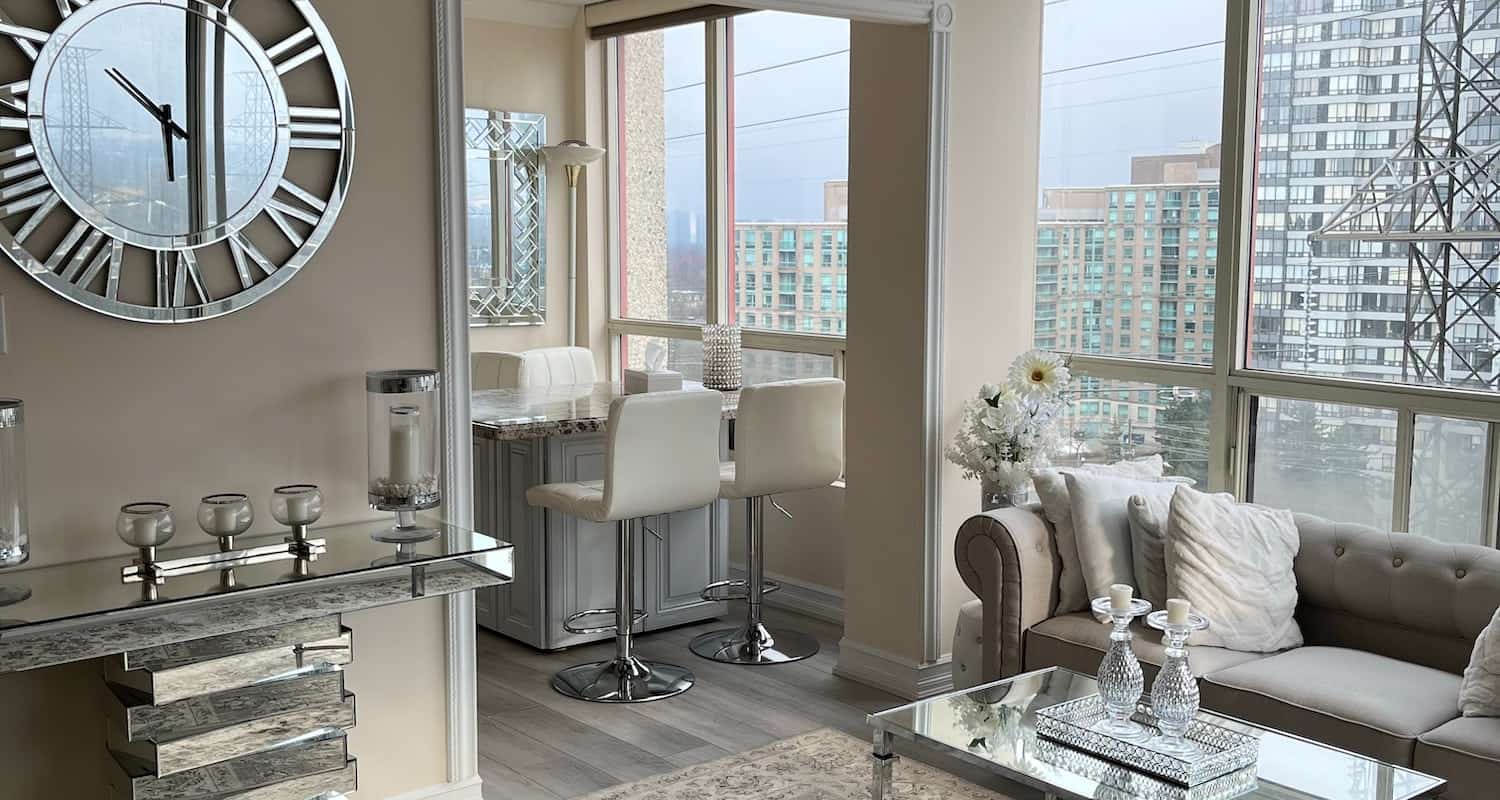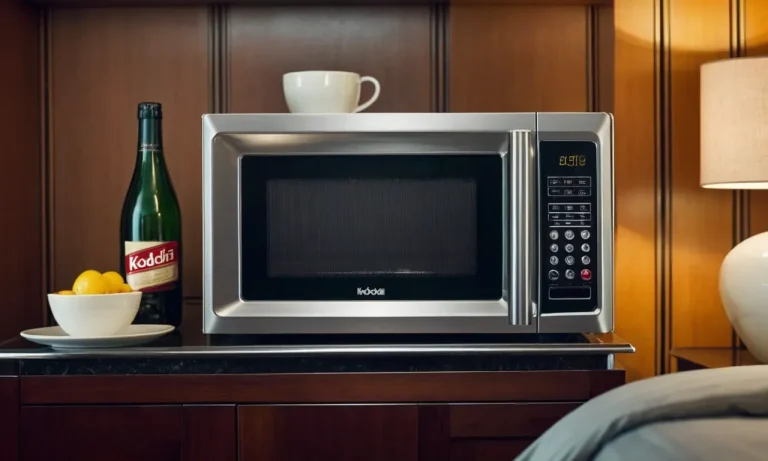Can You Get a Hotel Room for a Day? A Comprehensive Guide
Imagine this: you’re on a long road trip, and you need a place to freshen up, take a nap, or simply relax for a few hours before hitting the road again. Or perhaps you have a long layover at the airport, and you’d rather spend it in the comfort of a hotel room than the crowded terminal.
In situations like these, the question arises: can you get a hotel room for a day?
If you’re short on time, here’s a quick answer to your question: Yes, you can get a hotel room for a day, and many hotels offer day rates or hourly rates for short-term stays.
In this comprehensive guide, we’ll explore the ins and outs of booking a hotel room for a day, including the different options available, the costs involved, and tips for finding the best deals. We’ll also address common concerns and misconceptions surrounding day-use hotel rooms, ensuring you have all the information you need to make an informed decision.
What is a Day-Use Hotel Room?
Definition and purpose
A day-use hotel room, also known as a day stay or day rate, is a room reserved for a specific number of hours during the day, typically between 6 to 12 hours. The main purpose of these rooms is to provide a comfortable and private space for guests who need a place to rest, work, or simply relax without committing to an overnight stay.
These rooms are a fantastic solution for travelers with long layovers, business professionals needing a quiet workspace, or locals seeking a staycation getaway. By offering a day rate, hotels can maximize their room occupancy and cater to a wider range of guests beyond the traditional overnight stays.
Difference from overnight stays
While day-use rooms share many similarities with regular hotel rooms, there are a few key distinctions. Unlike overnight stays, day-use rooms are typically available for a shorter duration, often with check-in and check-out times aligned with daytime hours.
For example, a common day-use period could be from 9 AM to 6 PM.
Additionally, day-use rates are generally lower than overnight rates, making them a more cost-effective option for guests who don’t require a full night’s accommodation. According to a report by Hotel News Resource, the average day rate in the United States is around 30-50% of the overnight rate, offering significant savings for short-term stays.
| Day-Use Room | Overnight Stay |
|---|---|
| Shorter duration (6-12 hours) | Full night accommodation |
| Lower rates (30-50% of overnight) | Standard overnight rates |
| Daytime check-in/check-out | Standard check-in/check-out times |
Common use cases
Day-use hotel rooms cater to a diverse range of guests with varying needs. Here are some common use cases:
- Layover travelers: For those with long layovers between flights, a day-use room provides a comfortable space to rest, freshen up, and recharge before continuing their journey.
- Business professionals: Busy executives or remote workers can take advantage of day-use rooms as a quiet and productive workspace away from the office or home distractions.
- Staycations or local getaways: Residents looking for a relaxing escape without traveling far can enjoy a day-use room as a mini-vacation or a change of scenery. 😎
- Pre-event preparations: Brides, grooms, or attendees of special events can use day-use rooms to get ready and prepare for their big day without the hassle of coordinating with others.
With the growing demand for flexibility and convenience, day-use hotel rooms offer a practical and cost-effective solution for guests seeking temporary accommodation without the commitment of an overnight stay.
As the trend continues to gain popularity, more hotels are embracing this concept, providing travelers and locals alike with a unique and valuable service. 🎉
Types of Day-Use Hotel Room Rates
Getting a hotel room for just a day is a convenient option for travelers, and hotels have adapted to this demand by offering various day-use rates. These rates cater to different needs, from a quick stopover to an extended stay. Let’s explore the common types of day-use hotel room rates:
Hourly rates
Hourly rates are perfect for those who need a room for a short period, such as a quick nap or a few hours of work. Many hotels offer hourly rates, typically ranging from 3 to 8 hours. This option is popular among airport travelers with long layovers or those seeking a private space for a few hours.
According to DayUse.com, over 40% of day-use bookings are for hourly stays.
Day rates
Day rates, also known as day-use rates, are designed for guests who need a room for a full day, typically from check-in time (often around 10 AM or 12 PM) until the evening (around 6 PM or 8 PM). These rates are usually lower than the overnight rate, making them an affordable option for those who don’t require an overnight stay.
Day rates are popular among business travelers attending meetings or conferences, or for those seeking a comfortable workspace away from home or the office. According to a survey by Hotel News Resource, 🔥over 60% of hotels offer day-use rates🔥.
Early check-in and late check-out options
Many hotels also offer early check-in and late check-out options, which can be a lifesaver for travelers with early arrivals or late departures. 😊 Early check-in allows guests to access their room before the standard check-in time, while late check-out extends their stay beyond the regular check-out time.
These options are often subject to availability and may incur additional fees, but they provide flexibility for those with unconventional travel schedules.
When it comes to day-use hotel room rates, the options can vary widely depending on the hotel, location, and demand. Here’s a quick comparison of typical rates:
| Rate Type | Duration | Typical Cost |
|---|---|---|
| Hourly rate | 3-8 hours | $30 – $100 |
| Day rate | 10 AM – 6 PM or 12 PM – 8 PM | $50 – $150 |
| Early check-in | Varies | $20 – $50 |
| Late check-out | Varies | $20 – $50 |
It’s important to note that these rates can fluctuate based on factors such as location, hotel category, demand, and seasonality. 👍 Always check with the hotel directly for their specific day-use rates and policies.
How to Book a Day-Use Hotel Room
Booking a hotel room for just a few hours or a day can be a convenient and cost-effective option for travelers, business professionals, or anyone in need of a comfortable space for a short period. With the rise of the sharing economy and the growing demand for flexible accommodation, more hotels are offering day-use rates.
Here are some popular ways to book a day-use hotel room:
Online booking platforms
Several online platforms have emerged specifically for booking day-use hotel rooms. Sites like Dayuse.com and HotelsByDay.com allow you to search for hotels in your desired location, view availability, and book rooms for a few hours or an entire day.
These platforms often offer discounted rates compared to overnight stays and provide a convenient way to find and book day-use rooms from a wide selection of hotels.
Directly with hotels
Many hotels also offer day-use rates directly through their websites or by contacting the front desk. This option can be particularly useful if you have a preferred hotel brand or location in mind. Some hotels may offer better rates or package deals when booking directly, so it’s worth exploring this avenue as well.
When contacting hotels directly, be upfront about your need for a day-use room and inquire about their policies and rates. Keep in mind that availability and pricing may vary depending on the hotel’s occupancy levels and demand for overnight stays.
Tips for finding the best deals
- Be flexible with your dates and times to increase your chances of finding better rates.
- Consider booking during weekdays or off-peak seasons when hotel occupancy is typically lower.
- Look for hotels offering day-use packages that include amenities like access to the pool, fitness center, or spa facilities.
- Join hotel loyalty programs or sign up for their email lists to receive exclusive discounts and promotions.
- Check for promo codes or coupon websites that offer discounts on day-use bookings.
According to a recent study, the day-use hotel market is projected to grow by 12.7% annually from 2022 to 2027, driven by factors such as increased business travel, the rise of the gig economy, and the desire for flexible accommodation options.
😎 With the convenience and affordability of day-use hotel rooms, it’s no wonder this trend is gaining popularity among travelers and locals alike.
Remember, booking a day-use hotel room can be a great way to enjoy a comfortable and convenient space for a few hours or a day, whether you need a quiet place to work, a private area to freshen up, or simply a luxurious retreat for a staycation.
So why not give it a try on your next trip or even in your own city? 🏨🎉
Costs and Considerations
Average day-use rates
The cost of renting a hotel room for the day, also known as a “day-use rate,” can vary significantly depending on several factors. According to a study by DayUse.com, a leading day-use hotel booking platform, the average day-use rate in the United States is around $100 to $150 for a standard room.
However, rates can range from as low as $50 in some cities to over $300 in luxury hotels or during peak seasons. 😮
In general, day-use rates are typically lower than the standard overnight rate, as hotels aim to maximize occupancy by offering discounted rates for shorter stays. On average, day-use rates are 30% to 50% lower than the overnight rate.
For example, if a hotel’s overnight rate is $200, the day-use rate might be around $120 to $140. 💰
Factors affecting pricing
Several factors can influence the day-use rate for a hotel room, including:
- Location: Hotels in major cities, tourist destinations, or business districts tend to have higher day-use rates.
- Hotel category: Luxury hotels and upscale properties typically command higher day-use rates compared to budget or mid-range hotels.
- Demand and occupancy: During peak periods or high occupancy, hotels may increase day-use rates due to limited availability.
- Day of the week: Day-use rates may be higher on weekends or during special events when demand is higher.
- Room type: Larger rooms, suites, or rooms with special amenities usually have higher day-use rates.
Additional fees and taxes
In addition to the base day-use rate, hotels may charge additional fees and taxes. These can include:
- Resort fees: Some hotels, especially in popular vacation destinations, charge a daily resort fee to cover amenities like pools, fitness centers, and Wi-Fi.
- Parking fees: If you plan to drive to the hotel, you may need to pay for parking, either in a hotel lot or nearby garage.
- Taxes: Like overnight stays, day-use rates are subject to local and state taxes, which can add 10% to 20% to the total cost.
It’s essential to inquire about any additional fees and taxes when booking a day-use room to avoid unexpected charges. Many hotel booking websites and apps, such as Hotels.com and Booking.com, now offer day-use options and provide transparent pricing information, including any additional fees. 👍
When considering a day-use hotel room, it’s crucial to weigh the costs against the benefits and convenience it offers. For instance, a day-use room can provide a comfortable and private space for remote work, relaxation, or refreshing before a flight or event.
Ultimately, the decision will depend on your specific needs and budget. With proper research and planning, you can find a day-use room that fits your requirements and offers excellent value for money. 🎉
Addressing Common Concerns and Misconceptions
Legality and safety
Renting a hotel room for a day is perfectly legal in most places, but it’s essential to be aware of local laws and regulations. According to Hotels.com, hotels are generally free to rent rooms for any duration they choose, including just a few hours.
However, some cities or states may have specific ordinances or zoning laws that restrict short-term rentals. It’s always a good idea to check with the hotel and local authorities to ensure you’re not violating any rules.
Regarding safety, reputable hotels prioritize the security and well-being of their guests, regardless of the length of their stay. They typically have robust security measures in place, such as surveillance cameras, key card access, and trained staff to ensure a safe and comfortable environment.
😊 Furthermore, hotels are subject to strict health and safety regulations, so you can rest assured that your room will be clean and well-maintained.
Privacy and discretion
Many people worry about privacy and discretion when renting a hotel room for a day, but most hotels are professionals and respect their guests’ privacy. Travel + Leisure reports that hotels generally don’t ask questions or make assumptions about why someone is booking a room for a short stay.
They understand that people have various legitimate reasons for needing a room for a few hours, such as a place to rest during a layover, a quiet workspace, or a private meeting space.
If discretion is a concern, you can always request a room away from high-traffic areas or opt for a hotel that caters to short-term stays. Some hotels even offer “day rates” or packages specifically designed for guests who only need a room for a few hours. 😉
Hotel policies and restrictions
While most hotels are open to renting rooms for a day, some may have specific policies or restrictions in place. For example, some hotels may require a minimum stay of one night or charge an additional fee for short-term rentals.
Others may have blackout dates or limited availability for day-use rooms during peak seasons or major events.
It’s always best to check with the hotel directly to understand their policies and restrictions. Oyster.com suggests contacting the hotel in advance and being upfront about your intended length of stay. This way, you can avoid any surprises or misunderstandings upon arrival. 👍
Additionally, some hotels may require a credit card for incidentals or a security deposit, even for short-term stays. It’s also worth noting that check-in and check-out times may be more strictly enforced for day-use rooms, so be sure to clarify these details with the hotel.
Conclusion
Whether you’re a road warrior in need of a comfortable pit stop, a traveler with a long layover, or someone seeking a private and convenient space for a few hours, booking a day-use hotel room can be a practical and cost-effective solution.
By understanding the different options, costs, and considerations involved, you can make an informed decision and enjoy the convenience and comfort of a hotel room without committing to an overnight stay.
Remember, reputable hotels and online platforms offer day-use rooms with the same level of professionalism and discretion as traditional overnight stays. With a little research and planning, you can find the perfect day-use hotel room to suit your needs and make the most of your time on the go.







